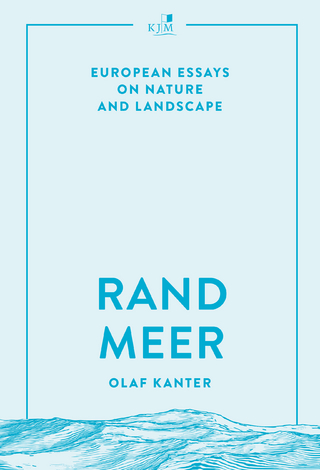The Crystallization of the Iraqi State
Geopolitical Function and Form
2003
Peter Lang Group Ag, International Academic Publishers (Verlag)
978-3-03910-067-5 (ISBN)
Peter Lang Group Ag, International Academic Publishers (Verlag)
978-3-03910-067-5 (ISBN)
In 1921 the State of Iraq was established under a British-held mandate from the League of Nations. Drawing on the rich archives available, this book examines the fundamental geographical and historical factors that shaped the geopolitical crystallization of this new State. Iraq's geostrategic location was key, as it lay in a shatterbelt zone of clashing powers and political ideologies. This location invited the attentions of competing world powers.
Many resultant features filtered into the new State. Clashes between various communal identities, themselves a reflection of Iraq's geostrategic position, presented severe challenges to Iraqi consolidation. So too did the imperial ambitions of Britain, which was still trying to secure its own interests in the region. Despite new Wilsonian principles of self-determination, Britain gained the Iraqi mandate and backed the narrow strand of nationalism represented by the Sunni Arab elite. With such a limited indigenous support base, this Arab administration remained dependent upon Britain. This exacerbated ethnic and religious divisions, creating a dangerously unbalanced State. Such unequal access to power was reinforced by the clustered geographical distribution of the major ethnic and religious groups. This book offers a thorough analysis.
Many resultant features filtered into the new State. Clashes between various communal identities, themselves a reflection of Iraq's geostrategic position, presented severe challenges to Iraqi consolidation. So too did the imperial ambitions of Britain, which was still trying to secure its own interests in the region. Despite new Wilsonian principles of self-determination, Britain gained the Iraqi mandate and backed the narrow strand of nationalism represented by the Sunni Arab elite. With such a limited indigenous support base, this Arab administration remained dependent upon Britain. This exacerbated ethnic and religious divisions, creating a dangerously unbalanced State. Such unequal access to power was reinforced by the clustered geographical distribution of the major ethnic and religious groups. This book offers a thorough analysis.
The Author: Zoë Preston has spent much of her life in the Middle East, living in Sudan, Oman, Kuwait and Jordan. She has also travelled extensively within the region, including numerous trips to Iraq. These experiences sparked an ongoing interest in Middle Eastern politics. After reading Geography at Jesus College, Oxford, she gained her Geopolitics Ph.D. at the School of Oriental and African Studies, London University. She now works for the Department for International Development.
| Erscheint lt. Verlag | 28.7.2003 |
|---|---|
| Verlagsort | Oxford |
| Sprache | englisch |
| Maße | 148 x 210 mm |
| Gewicht | 470 g |
| Themenwelt | Geisteswissenschaften ► Geschichte ► Teilgebiete der Geschichte |
| Naturwissenschaften ► Geowissenschaften ► Geografie / Kartografie | |
| Sozialwissenschaften ► Politik / Verwaltung ► Allgemeines / Lexika | |
| Sozialwissenschaften ► Politik / Verwaltung ► Politische Systeme | |
| Schlagworte | Arab • Britain • crystallization • Entstehung • Form • Function • geopolitical • Geschichte • Hardcover, Softcover / Geowissenschaften/Geografie • HC/Geowissenschaften/Geografie • imperialism • Irak • Iraq • Iraqi • Kurds • Mesopotamia • Middle East • Ottoman • Preston • Religion • Shi'i • Staat • State • Sunni |
| ISBN-10 | 3-03910-067-X / 303910067X |
| ISBN-13 | 978-3-03910-067-5 / 9783039100675 |
| Zustand | Neuware |
| Haben Sie eine Frage zum Produkt? |
Mehr entdecken
aus dem Bereich
aus dem Bereich
Ein Schiff, zwei Fahrten und das weltweit größte Rätsel auf See
Buch | Hardcover (2019)
mareverlag
28,00 €
Geschichte der Mathematik in Europa von Vieta bis Euler
Buch | Softcover (2023)
Springer Spektrum (Verlag)
59,99 €




